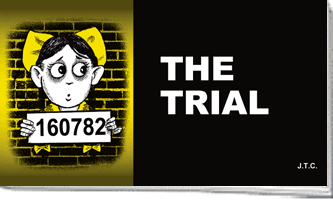Harvard Hosts Anti-Homeschool Summit
- Issue Date: May/June 2020
Because of the coronavirus, many parents have experienced homeschooling for the first time. Most are not aware of the controversy surrounding this practice. But those who have chosen homeschooling instead of the public school’s propaganda mill are very aware of the risk they’re taking.
The Home School Legal Defense Association (HSLDA) has been the main line of defense protecting the fragile rights of parents to have the final say on what is taught to their children. HSLDA willingly steps into any fray between homeschooling parents and intrusive bureaucrats, usually with significant success.
A “summit” called this summer at Harvard University demonstrates the prestige of the forces arrayed against parents who dare exercise their right to homeschooling. The title of the meeting is: “The Homeschooling Summit: Problems, Politics, and the Prospects for Reform.” Its stated purpose is to bring together leaders in education and child welfare policy to discuss child rights and homeschooling.
You would think that the organizers of this summit in this “ivy league atmosphere of unbiased research” would want to hear all sides of the issue. However, not only was HSLDA not invited, members of the panel have previously expressed strong bias against this homeschool legal defender and homeschooling in general.
One panel member, Samantha Field, wrote in an article: “The Home School Legal Defense Association has fomented a culture of suspicion and wild conspiracy theories that may put children in danger.”
Another panelist, Dr. Rachel Coleman, is founder of the Coalition for Responsible Home Education and holds the view that homeschooling must be more firmly regulated by the government.
The writings of other panelists demonstrate a broad hostility to homeschooling in general. One suggested that a child should be permitted to go to court to force his parents to allow him to attend public school. Another suggested: “The reason parent-child relationships exist is because the State confers legal Parenthood.”
Another suggested an outside person should be required to look into the situation and see whether the child is “meeting educational outcomes.”
Homeschooling is just another aspect of the global debate over parental rights versus child’s rights. In 1989, the United Nations adopted the Convention on the Rights of the Child (UNCRC). It included the rights to:
• Life, survival and development
• Protection from violence, abuse or neglect
• An education that enables them to fulfil their potential
• To be raised by, or have a relationship with their parents
• Express their opinions and be listened to.
There are a number of these UN conventions that are like treaties. The United Nations formulates these treaties on various subjects such as violence, terrorism, human rights, etc. Countries that agree to abide by the guidelines of these conventions sign on. One hundred ninety-six countries have signed on UNCRC with only one remaining —the United States.
Our US constitution specifies that such treaties are highly binding and US leaders have been reluctant to hand that kind of power to the globalist UN. This is fortunate, because it would be much more difficult for parents here to homeschool their children without intrusion by the state.
The risk is illustrated by the widely differing views of education. In public schools, the state has illustrated its abhorrence of Biblical teaching, promoting instead such sinful practices as sexual perversion and humanistic evolution. Should the state ever gain control of the curriculum for homeschoolers, the content would no doubt be significantly modified.
The current nationwide closure of the public schools will, no doubt, show many parents that there is an alternative to the indoctrination in the government schools.
When you are looking for something for the children to read, parents have told us that various Chick tracts have been helpful in developing a Christian worldview in their children.
- See more articles on related topics:
- Other Subjects
- Religious Freedom
Other Articles from May/June 2020:
More on Other Subjects:
Products of Interest:

Trial, The
A young girl is sued because she witnessed to her young friend. A humorous story that drives home the vital Biblical truth that Jesus is the only way to heaven.-

Hot Topics
128 pages
Over the years, Jack Chick has written some tracts on such "politically incorrect" issues that Christians were often afraid to pass them out. Yet those messages are both current and biblical.



